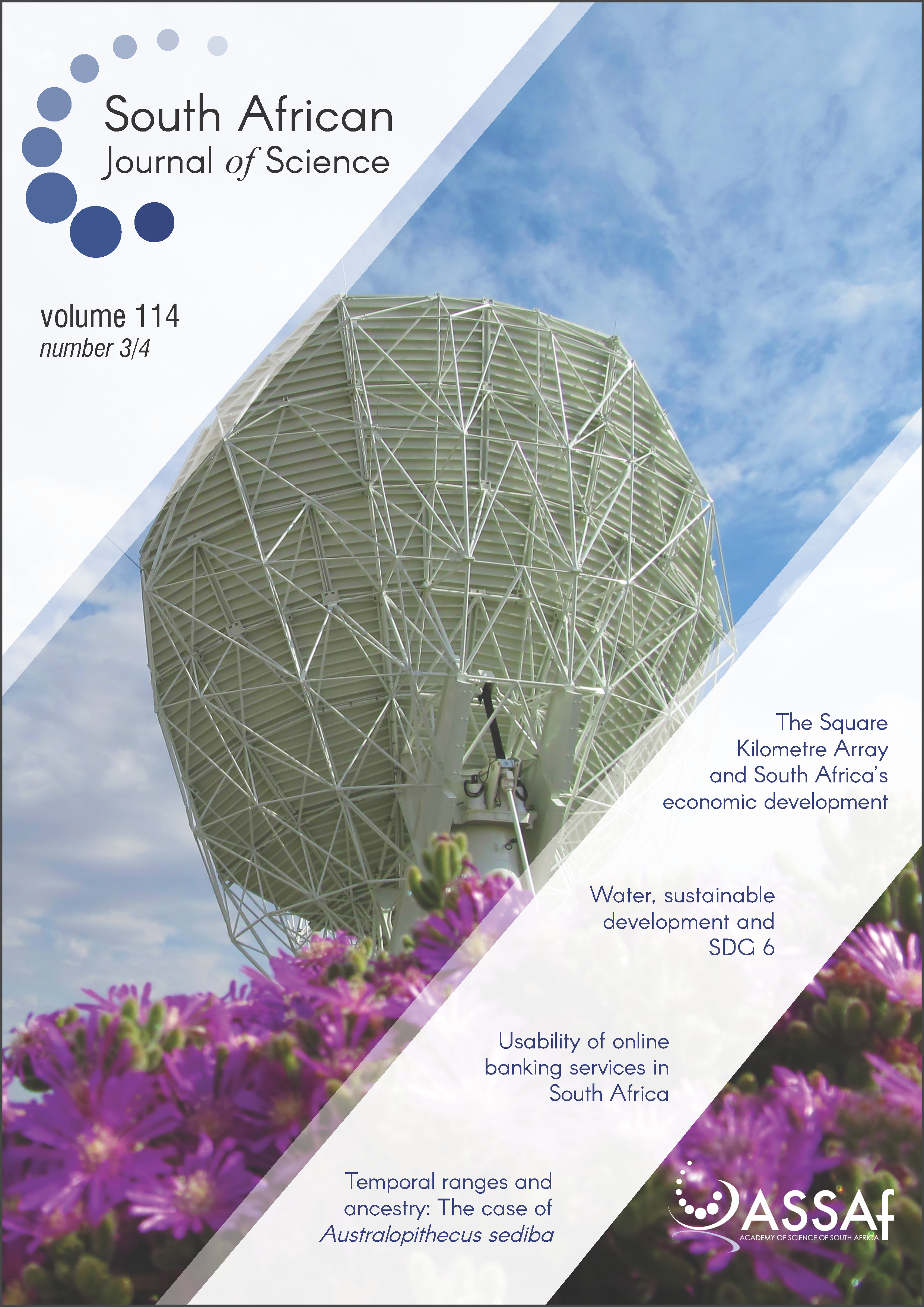System usability scale evaluation of online banking services: A South African study
DOI:
https://doi.org/10.17159/sajs.2018/20170065Keywords:
security, privacy, ebanking usability, website usability, South AfricaAbstract
Online banking is a critical service offered by financial institutions to their clientele to facilitate easier and faster access to financial services and transactions. Banks currently spend huge amounts of money on development and maintenance of websites and backend systems that offer online banking facilities to clients. Here we address the effect of moderating factors on online banking usability assessment in South Africa. Using statistical analysis techniques that included t-tests, ANOVA and correlation, we investigated whether there are statistically significant mean differences in system usability scale (SUS) scores based on a variety of moderating factors in South Africa. Findings based on a sample of 540 respondents show that SUS scores differ significantly based on factors such as age, experience and income, whereas factors such as gender, use frequency and employment did not affect the mean SUS scores. Given the individual SUS scores for a variety of users based on different demographics, the financial institutions might improve service usability to target specific user groups and realise their return on investment in digital banking channels. Therefore improving service usability might go a long way in encouraging online banking adoption in South Africa.
Significance:
- The overall assessment of online banking service by users based on a SUS measurement tool was investigated.
- The effect of moderating variables on the mean SUS scores of different user groups was established.
- An insight into areas of improvement with regard to usability based on demographic information of users is provided.
Published
Issue
Section
License

All articles are published under a Creative Commons Attribution 4.0 International Licence
Copyright is retained by the authors. Readers are welcome to reproduce, share and adapt the content without permission provided the source is attributed.
Disclaimer: The publisher and editors accept no responsibility for statements made by the authors
How to Cite
- Abstract 2448
- PDF 2148
- EPUB 251
- XML 270












.png)